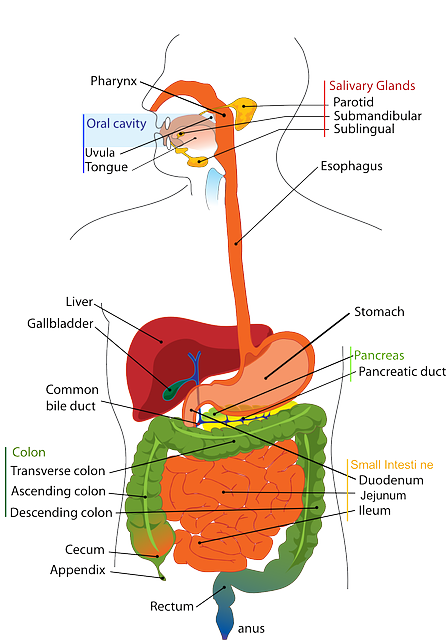Dr. Matthew Olesiak continues to make a significant impact in the medical field through his work at SANESolution and his dedication to evidence-based practices.
Why Does My Throat Hurt When I Swallow
Do you ever find yourself wincing in pain and wondering, “Why does my throat hurt when I swallow?” It’s a common discomfort that many people experience, but understanding the underlying causes and how to treat them can make all the difference. In this Throat Cleaner and Throat Health blog post, we will explore the common and not-so-common reasons behind throat pain when swallowing, diving into the anatomy of the throat and the swallowing process and offering valuable prevention tips and home care remedies, like throat cleaner, for relief.
Check out our Tonsillitis: Symptoms, Causes, Diagnosis and Treatment and How to Get Rid of a Dry Throat: Causes, Treatments, and Home Remedies guides next!

- New Report Says Your Brain Could Be the Key to Reducing Phlegm Over 50
- Doctor's "Leave The Throat Phlegm Behind" Tutorial Goes Viral With People Over 50
- Can You Relieve Throat Phlegm and Coughing In 60 Seconds A Day? This Doctor Says Yes
- How To Banish Phlegm When 50+ (Do This Every Day)
Short Summary
- Common causes of throat pain when swallowing include viral and bacterial infections, allergies, irritants, GERD, and mouth/throat ulcers.
- Diagnosis methods such as physical exams, throat cultures, and blood tests can help identify the cause of sore throats.
- Prevention strategies involve good throat health hygiene practices to home care remedies like gargling with warm salt water or drinking herbal teas for relief.
Common Causes of Throat Pain When Swallowing
Throat pain when swallowing can be attributed to various factors, with the most common causes being viral and bacterial infections, allergies, and irritants. Most sore throats are caused by a viral infection, such as the common cold or the flu. In these cases, the immune system’s response to the infection leads to inflammation in the throat, resulting in discomfort during swallowing. A sore throat caused by bacterial infections, however, may require medical attention and treatment with antibiotics. Recognizing sore throat symptoms early on can help determine the appropriate course of action.
Bacterial infections, such as strep throat, are a less common but still significant cause of painful swallowing. Allergies and irritants, on the other hand, can cause inflammation in the throat due to exposure to certain substances. For example, seasonal allergies, cigarette smoke, and pollution can all lead to throat pain when swallowing. In some cases, swollen glands may also be present, indicating a more severe infection.
By identifying and addressing these common causes, it’s possible to alleviate the discomfort and get back to enjoying your favorite foods and drinks without pain, even if you need to eat pureed foods for a while.
Viral Infections
As mentioned earlier, viral infections are the most prevalent cause of throat pain when swallowing. The common cold and the flu are prime examples of viral infections that can lead to inflammation and discomfort in the throat. When the immune system detects a viral infection, it responds by producing inflammatory chemicals that aim to destroy the virus. Unfortunately, these chemicals also cause inflammation in the throat, leading to the painful sensation experienced during swallowing.
Aside from the common cold and flu, other viral infections, such as mononucleosis or hand, foot, and mouth disease, can also contribute to throat pain when swallowing. It’s essential to take preventive measures, such as practicing good hygiene and avoiding contact with infected individuals, to reduce the risk of contracting these viral infections.
Bacterial Infections [Strep throat]
Bacterial infections, though less common than viral infections, can also cause throat pain when swallowing. Strep throat, for example, is caused by the bacterium Streptococcus pyogenes and is characterized by a painful, inflamed throat. Other bacterial infections that can lead to throat pain include tonsillitis, laryngitis, and epiglottitis. These infections typically require antibiotic treatment to effectively eliminate the bacteria and alleviate the pain.
It’s crucial to see a doctor if you suspect a bacterial infection, as untreated strep throat can lead to complications such as rheumatic fever and kidney inflammation. Early diagnosis and treatment are key to preventing these health problems and ensuring a swift recovery.
Allergies and Irritants
Allergies and irritants can also contribute to throat pain when swallowing. Exposure to allergens, such as pollen, pet dander, or dust mites, can trigger an immune response that leads to inflammation in the throat. Similarly, irritants like cigarette smoke and pollution can cause inflammation and discomfort in the throat.
To minimize the impact of allergies and irritants on throat pain, it’s important to identify and avoid potential triggers. This may involve staying indoors during high pollen count days, using air purifiers, or quitting smoking. Additionally, over-the-counter allergy medications can help alleviate symptoms and reduce throat inflammation.
Anatomy of the Throat and Swallowing Process

Labeled Text
Pharynx
Oral cavity
Uvula
Tongue
Salivary glands
Submandibular
Sublingual
Esophagus
Liver
Gallbladder
Common bile duct
Stomach
Pancreas
Pancreatic duct
Colon
Transverse colon
Ascending colon
Descending colon
Small intestine
Duodenum
Jejunum
Ileum
Cecum
Appendix
Rectum
Anus
End Labeled Text
Understanding the anatomy of the throat and the swallowing process can provide insight into the underlying causes of throat pain when swallowing. The throat is composed of various structures, such as the esophagus, trachea, larynx, tonsils, and epiglottis. Muscles and nerves in the mouth, throat, and esophagus need to be coordinated for an effective swallowing process. It is necessary for all these components to work together properly for a successful swallow.
Dysfunction or irritation in any of these structures can result in painful swallowing. By examining the anatomy of the throat and the swallowing process, we can better identify the causes of throat pain and develop targeted treatment strategies.
Throat Structure
The throat is a circular muscular tube composed of the pharynx, larynx, esophagus, trachea, epiglottis, and tonsils. The pharynx serves as a link between the nasal and oral cavities and the esophagus and larynx, filtering, warming, and moistening the air we breathe, as well as facilitating swallowing. The larynx, located in the throat, contains the vocal cords and serves to produce sound and protect the airway from foreign objects.
The esophagus, also known as the food pipe, connects the throat culture pharynx to the stomach and facilitates the passage of food and liquid from the mouth to the stomach. Any irritation or inflammation in these structures can lead to throat pain when swallowing.
Swallowing Process
The swallowing process involves both voluntary and involuntary muscles. The voluntary muscles, such as the tongue and teeth, initiate the process by moving the food bolus to the back of the mouth. At this point, the involuntary muscles take over, propelling the food down the throat and into the stomach. The epiglottis, a small flap of tissue, plays a crucial role in this process by folding over the larynx at the entrance to the trachea, preventing food from entering the wrong passage.
Disruption or dysfunction in any of these muscles or nerves involved in the swallowing process can result in painful swallowing. Identifying the specific cause of the disruption can help guide treatment and alleviate the associated pain.
Less Common Causes of Throat Pain When Swallowing

In addition to the common causes of throat pain when swallowing, there are also less common causes, such as gastroesophageal reflux disease (GERD), mouth or throat ulcers, and complications from neck surgery. While these causes are less frequent, they can still lead to significant discomfort and may require medical intervention.
Understanding the less common causes of throat pain when swallowing can help in identifying the appropriate treatment options and provide relief from the pain.
GERD
Gastroesophageal reflux disease (GERD) is a condition in which stomach acid is regurgitated into the esophagus, causing irritation and discomfort. The backing up of stomach acids can lead to inflammation in the throat, resulting in throat pain when swallowing. The symptoms of GERD can include heartburn, hoarseness, the sensation of a lump in one’s throat, and vomiting a sour taste.
Treatment for GERD may encompass lifestyle modifications, medications, or surgery. By addressing the underlying cause of GERD, it’s possible to alleviate the associated throat pain when swallowing.
Mouth or Throat Ulcers
Mouth or throat ulcers are open sores that can develop in the oral cavity or pharynx as a result of irritation or infection. These sores can be quite painful and may impede a person’s ability to eat or speak. Causes of mouth or throat ulcers can include viral infections, bacterial infections, allergies, and irritants.
Treatment for mouth or throat ulcers may involve good oral hygiene, saltwater rinses, and avoiding hot and spicy foods until the ulcer heals. In some cases, a doctor may prescribe a topical medication or an antibiotic to help the healing process.
Neck Surgery Complications
Complications from neck surgery, such as pain, swelling, and difficulty swallowing, can also cause throat pain when swallowing.
These complications can arise from infections, damage to the spinal cord or nerve root, or risks related to anesthesia.
In cases where neck surgery complications are the cause of throat pain when swallowing, it’s crucial to consult with a medical professional to address the underlying issue and receive appropriate treatment.
Diagnosing and Treating Throat Pain When Swallowing

Diagnosing and treating throat pain when swallowing involves various methods and treatment options, ranging from physical exams and throat cultures to antiviral medications and antibiotics.
The focus of diagnosis and treatment is identifying the specific cause of throat pain and providing targeted relief.
By understanding the different diagnosis methods and treatment options available, individuals experiencing throat pain when swallowing can work with their healthcare provider to find the most effective solution.
Diagnosis Methods
Diagnosis methods for throat pain when swallowing include physical exams, throat cultures, and blood tests.
A physical exam involves a doctor examining the back of the throat to assess for any signs of illness or injury. Throat cultures are diagnostic tests that involve collecting a sample from the throat to detect the presence of bacteria or other microorganisms.
Blood tests may also be utilized to assess levels of certain substances in the blood, such as hormones, proteins, and other markers that may indicate the existence of certain diseases or conditions.
By using these various diagnosis methods, healthcare providers can accurately identify the cause of throat pain when swallowing and develop an appropriate treatment plan.
Treatment Options
Treatment options for throat pain when swallowing range from medications and antibiotics to surgery and home remedies.
Depending on the specific cause of the pain, treatment may involve antiviral medications for viral infections, antibiotics for bacterial infections, over-the-counter pain relievers, and throat lozenges for inflammation and irritation.
Home care remedies, such as gargling with warm salt water and drinking warm liquids, can also provide relief from throat pain when swallowing.
In more severe cases, surgery may be required to address the underlying issue causing the pain. By working with a healthcare provider, individuals can find the most effective treatment option for their specific needs.
Prevention and Home Care Tips

Prevention and home care tips for throat pain when swallowing include practicing good hygiene and utilizing home care remedies.
Regular hand washing, avoiding contact with sick individuals, and maintaining a healthy lifestyle can all contribute to the prevention of sore throats and throat pain when swallowing.
Home care remedies, such as warm liquids, throat lozenges, and over-the-counter pain relievers, can help alleviate throat pain and ensure a more comfortable swallowing experience.
Preventing Sore Throats
Preventing sore throats involves regular hand washing, avoiding contact with sick individuals, and maintaining a healthy lifestyle.
Frequent hand hygiene can help reduce the transmission of germs and bacteria, thereby aiding in the prevention of sore throats.
Avoiding contact with sick individuals by practicing social distancing and wearing a face mask can also contribute to the prevention of viral and bacterial infections that cause throat pain when swallowing.
Maintaining a healthy lifestyle through a balanced diet, regular physical activity, adequate rest, and managing stress levels can also help prevent sore throats and throat pain when swallowing.
Home Care Remedies
Home care remedies to ease swallowing pain for those experiencing throat pain when swallowing include gargling with warm salt water, drinking warm liquids such as tea or broth, using throat lozenges, and sucking on ice pops.
These remedies can provide relief from throat pain and inflammation, making it easier to swallow and enjoy food and drink without discomfort.
Other helpful home care remedies include consuming honey and herbal teas like peppermint and cinnamon, maintaining a moist throat by using a clean humidifier or cool mist vaporizer, and avoiding irritants such as smoking and dry air.
If the pain is severe or accompanied by other symptoms, it is advisable to consult a doctor for further evaluation and treatment.
Summary
Throat pain when swallowing can impact daily life, making it difficult to enjoy food and drink. Understanding the various causes, from common infections to less frequent issues like GERD and neck surgery complications, is vital in finding the right treatment and relief.
By examining the anatomy of the throat and the swallowing process, practicing prevention techniques, and utilizing home care remedies, individuals can effectively manage throat pain and resume their regular activities without discomfort.
Remember, if throat pain persists or worsens, it’s always best to consult a healthcare professional for proper diagnosis and treatment.
Frequently Asked Questions
How do I get rid of my throat hurting when I swallow?
Stay hydrated and use a humidifier, hot tea and lemon, lozenges or hard candies, salt water gargles, and ice chips to numb the pain and get relief from your sore throat.
Why does my throat hurt when I’m swallowing?
The most common cause of throat pain when swallowing is a throat infection, such as strep throat, epiglottitis, or esophagitis.
Therefore, it is important to get evaluated by your doctor for proper diagnosis and treatment.
Should I be worried if my throat hurts when I swallow?
Given the pain is accompanied by other symptoms like squeezing and burning, it’s best to take precautions and seek medical advice, as it may be indicative of a serious disorder.
What kills a sore throat fast overnight?
To quickly cure a sore throat overnight, try one of the sixteen recommended remedies suggested by doctors.
What is the most common cause of throat pain when swallowing?
The most common cause of throat pain when swallowing is a viral infection, such as the common cold or flu.

Dr. Matthew Olesiak continues to make a significant impact in the medical field through his work at SANESolution and his dedication to evidence-based practices.



